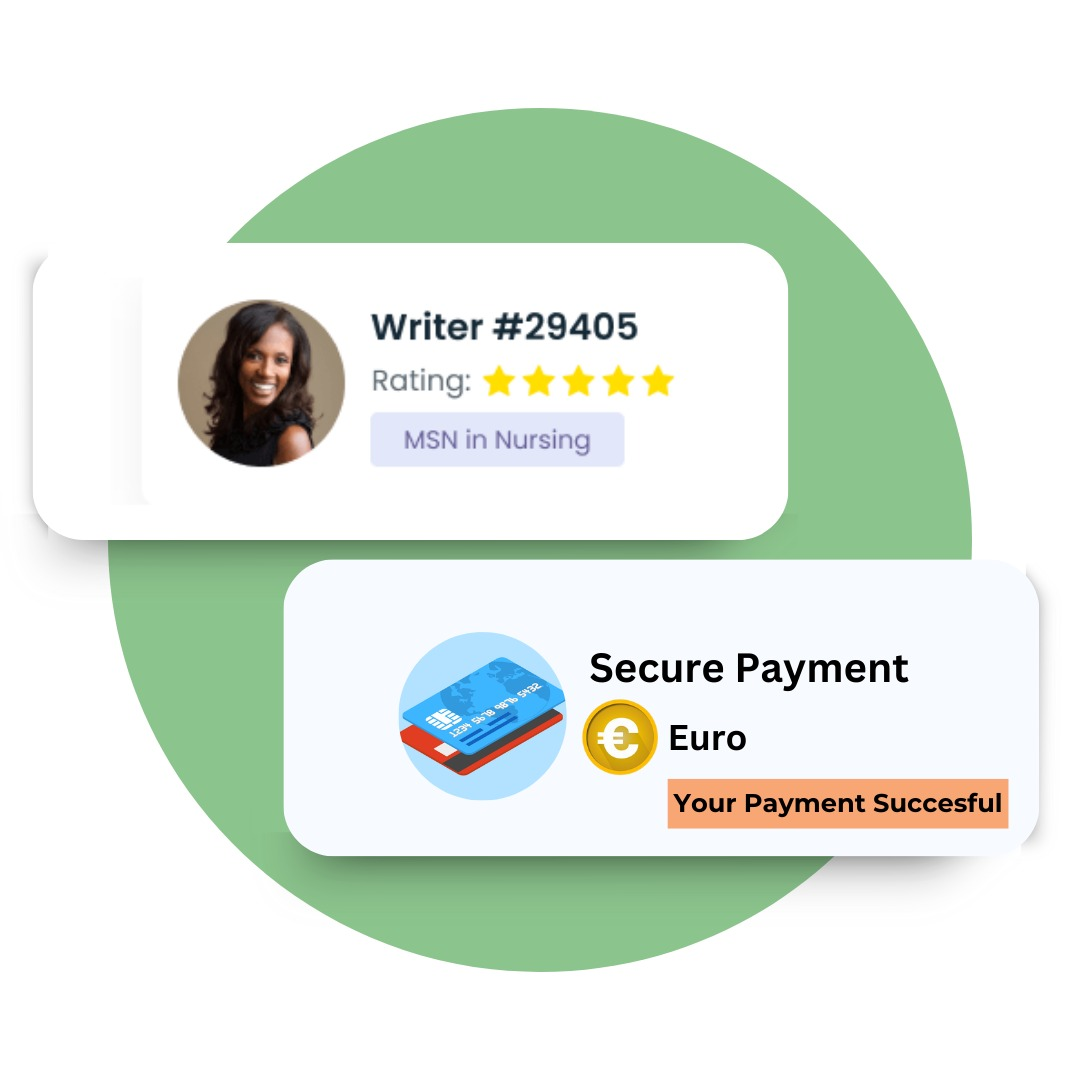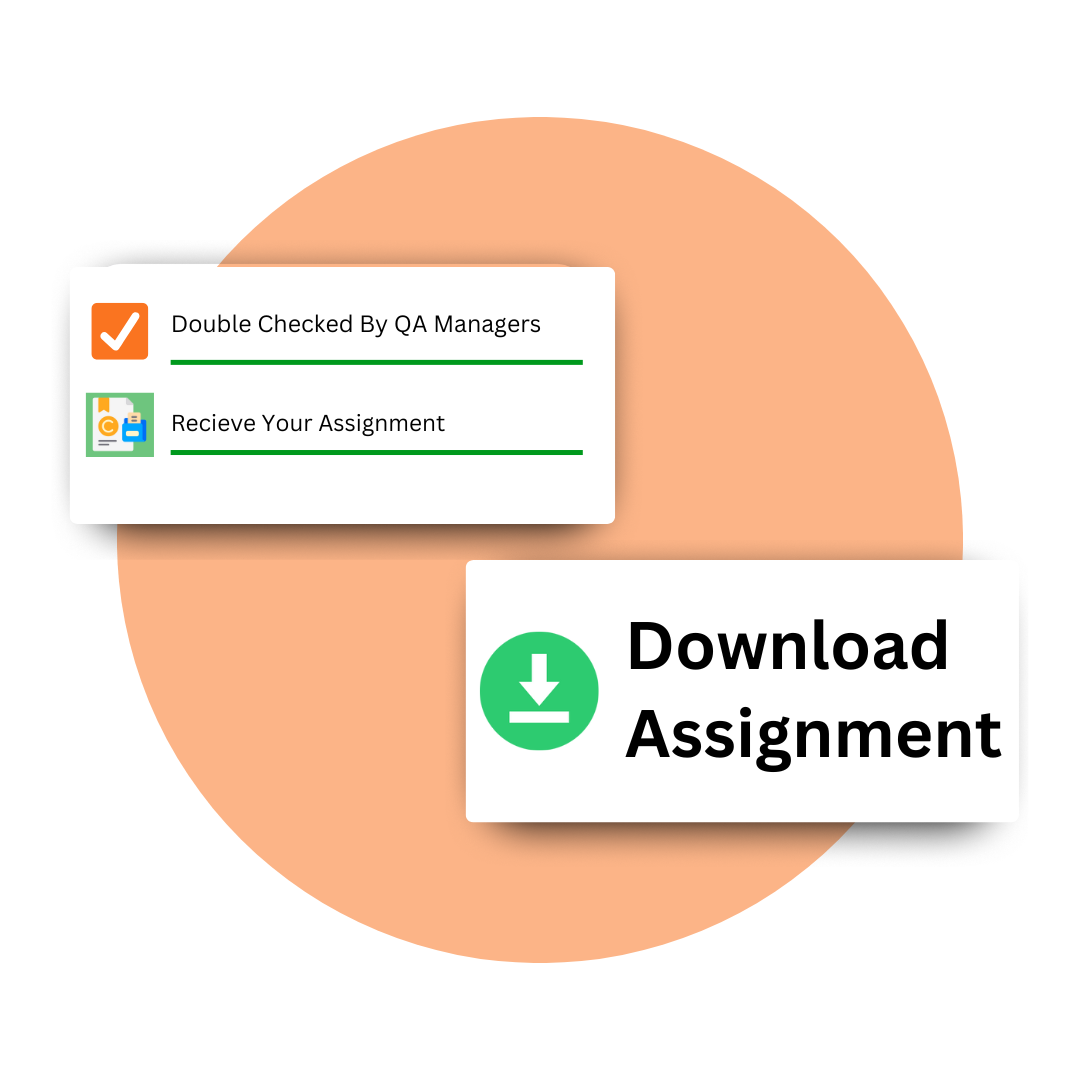Master your Communicating with a Team Level 2 assignment in just three easy steps.

Fill out the order form and mention all your assignment’s details. Attach all the important documents like PowerPoint, Excel, etc.

Make a payment using PayPal, credit/debit cards, or online banking services once you’ve received your quote.

Once your communicating with a team level 2 assignment is completed by our writers, you can download it from your mail.
We hire only the most experienced native UK writers who know everything about the peculiarities of communication, cultural backgrounds, and the requirements of academic writing in the region.
100% plagiarism-free content for any assignments. Every assignment is written from scratch, followed by comprehensive research, and passed through advanced plagiarism detection tools to ensure the highest authenticity.
Our assignments are written by human authors who do not plagiarize from AI-generated content. This ensures that your work shall have the highest academic standards while holding a personal touch.
We know deadlines have to be met. Whether your assignment is short-deadlined or flexible in deadlines, we promise you a submission well before submission time so that you have the needed time to review your assignment.
If you want help on communicating with a team level 2 assignment, we have native writers for whom ensuring that you receive quality work is quite imperative. Our writers are well conscious of how effective teamwork involves communication within an academic and professional environment, and our experts are focused on delivering high-quality work assignments on the basis of your course requirements. This team is confident about the handling of all sorts of assignments in any format so that assignments error-free might be completed.
Each paper needs rigorous editing and proofreading for an error-free assignment without grammatical, typographical, or logical mistakes. Even in formatting, much importance has to be accorded since our writers strictly work according to APA, MLA, Harvard, or any other requirement from the respective university. We provide end-to-end support services from generating rational content to right citations and references.
Effective communication is a very crucial aspect of successful team management. It is your responsibility as a leader to keep them informed, outline their responsibilities, and ensure that they provide regular feedback about their progress. Your communication pattern should give the team the impression of dependability on you in terms of support. guidance, and trust while working toward the achievement of goals.
A clear understanding of expectations oftentimes leads to better relations with team members while helping individual contributors meet their deadlines more effectively. That everyone will be given notice of any changes in the direction or priorities will be a sign of respect for all and increase motivation as proof of being valued in a cooperative process.
There are some fundamental principles of effective communication by which messages can only be transmitted and understood clearly, for example, clarity, whereby the message should not be ambiguous and have less jargon to enable the recipient to understand it better. Another critical aspect is purpose because every communication needs to have a clear intent: to inform, persuade, or ask for action. Another aspect, active listening, ensures that each party is heard and understood to be able to have constructive feedback.
The medium used in communicating the message also has a great deal to do with communication; whether it is talking face-to-face, emailing, or even a written report, for example, the channel of communication must be appropriate and convenient for the context of the presentation. Consistency in messaging prevents errors and misunderstandings while encouraging feedback serves as a stimulus for two-way communication so that errors and misunderstandings are quickly resolved.
There are several effective methods for communicating with a team, and what is appropriate for any given situation depends on the case. There is no substitute for face-to-face meetings when critical decisions must be made because such provide the ultimate two-way traffic where feedback can be received immediately and problems dealt with immediately. E-mail is a very useful means of formal communication and providing detailed information to many.
Video conferencing helps bridge the gaps of distance that usually accompany remote teams; it’s as close as one can get to having a face-to-face meeting, thus possible visual and verbal communication across geographical lines. Instant messaging systems like Slack or Microsoft Teams will facilitate informal, fast communication, thus setting the pace for cohesiveness. The team brief or group chat informs all people and encourages open dialogue. A mix of these methods will ensure there is effective communication within a team.
In all team communication, there may be potential barriers in the way of clarity and effectiveness of a message. Language is a major variable that causes most misunderstandings in diverse teams. People may not share the same first language. Cultural differences also play a role, as diverse communication styles, norms, and values may cause confusion or misinterpretation.
Lack of clearness in the message can be a barrier itself. Members may not know exactly what is being communicated. Disturbances or poor listening skills make communication ineffective. Emotional barriers, such as team stress or conflict, can even stop open and honest communication. All these communication barriers should be identified and hence addressed to maintain effective, smooth working within the team.
Establishing effective communication is the key to any organization. The most effective way to ensure that potential barriers in communication are at the lowest level would be by creating an atmosphere of trust and respect. This can be achieved by laying strong emphasis on open dialogue among people and promulgating the culture of listening and understanding—an important step toward eliminating misunderstandings and feelings of isolation.
Also, using several forms of media—for example, video, slides, and presentations—will add information that may be needed to avoid misunderstanding of the information being conveyed. A custom strategy in how messages are presented and establishing that there is a clear understanding of what each message communicates can eliminate or reduce given communication barriers.
Team briefings are quite important in regard to communication and teamwork and should therefore be prepared with thought and care. A good team briefing requires the right timing, appropriate length, the use of visuals and interactive elements, as well as clear objectives. In order to organize a successful team briefing, it is foremost important to define beforehand what will be discussed, follow an agenda, and inform all concerned ahead of time.
Team briefings are closely linked to work objectives as they provide a platform to communicate goals, expectations, and updates clearly to team members. Through regular briefings, leaders can align individual and team efforts with the overall objectives of the organization, ensuring everyone understands their roles and responsibilities. These briefings also foster collaboration by allowing team members to share insights, address challenges, and adjust their approaches as needed to meet targets. In short, team briefings help create a unified direction, keep teams focused, and support the achievement of work objectives effectively.
Team leaders have several methods of conducting team briefings to ensure effective communication and engagement. Face-to-face briefings allow for direct interaction, fostering immediate feedback and a personal connection. Virtual meetings via platforms like Zoom or Teams are ideal for remote teams, offering flexibility while maintaining communication.
Email briefings provide written documentation of updates or instructions, useful for complex details or when the message needs to be referenced later. Video briefings can be recorded and shared for teams with different schedules, ensuring everyone receives the same information. Each method has its advantages depending on the team’s needs and the nature of the message.
Preparing a briefing for a team involves being thorough enough to ensure the session is focused, efficient, and effective. First of all, what needs to be outlined is the reason for the briefing itself, stating which goals should be attained in the brief. This delineates the content and outline of the meeting. Then, keys are arranged, and these also undergo some form of prioritization based on their relevance and importance to the team.
Another thing that should be incorporated into the process is to know who the audience is, so the message should be directed towards the size of their understanding and also resonate in terms of their roles. A set agenda should then come in place with specific timelines so that the briefing does not derail while trying to discuss all pertinent topics. Lastly, there should be time allocated for questions and feedback so that participation can be enhanced as well as clarify concerns or confusion to make the briefing interactive and productive.
Leading a team briefing can be quite daunting, but fully prepared and thoughtfully planned ahead of time, it is possible to ensure that the session will be effective and efficient. To lead an effective team briefing, therefore, requires clear instruction, proper setting of expectations, keeping on track, and remaining focused at all times.
First, make introductions and briefly welcome any other relevant participants that will take part in the briefing session with its purpose well-articulated. Bring back to the team’s mind the previous set goals and objectives, and whether any new tasks or a shift in direction need to be brought forward and discussed.
Encourage participation by all members of the team by posing questions in the session while paying much attention to the required time and keeping on track. Keep on track attention through body and vocal cues in which the audience has to be attentive. Finally, thank the participating team members for their involvement and effort.
A team briefing is a process by which lots of critical information can be shared in effort to align team goals and harmonize working relationships among the members of a team. In essence, the main objectives of a briefing would include project status updates, clarification of roles and responsibilities, and solving any challenges or raising concerns that may cause disorientation among members.
Structurally, there is usually an outline of the agenda for the briefing, key announcements or updates, discussion of specific topics, and an open floor session for questions and feedback. This disciplined approach ensures that all pertinent information is clearly communicated while encouraging the engagement and participation of the team members in the end. Effective team briefings will thus enhance transparency, make communication efficient, and be of input to achieving the common goals.
Getting all team members involved in team briefings will motivate and encourage communication. Some of the effective ways are as follows:
Collaborative Agenda Setting: Bring onboard team members to decide what subjects they feel need to be brought out in the briefing so that everyone has a say.
Rotating Facilitation: Task the leadership of the briefing to different members who are usually rotated to give everyone an opportunity to put forward their opinions and develop leadership skills.
Interactive Dialogues: Open dialogues should be encouraged amongst the members to share progress, challenges, and input that enable them to own the agenda of the meeting.
Feedback Meetings: After briefings, seek feedback concerning the content and format of the meetings and continue to improve future meetings as well as ensure that they meet the needs of the team.
Recognition and Input: Recognize individual contributions during briefings. Engage members to present their projects so whereby they feel valued and included.
This way, the team briefings would be comprehensive and participatory in nature, thus enhancing team cohesion.
The team briefing achieved its most important objective: defining roles and responsibilities in a way that after the meeting, everyone who attended it left with clear knowledge of their work. Everyone felt involved and no one would doubt their commitment to their task afterwards. Above that core achievement, however, is the value of ideas shared, creating morale and efficiency enrichment. Generally, the team briefing was a success in the sense that it met its objective and also, had supplementary benefits for the group.
Read testimonials from students worldwide who are thrilled with our assignment writing services.
N
Noah

I was impressed by the quality of work and timely delivery of assignments by this service. Their expert guidance helped me tackle challenging topics with ease, making my CMI Level 2 journey smooth and rewarding. Highly recommended!
J
Jack

This service went above and beyond to assist me with my CMI Level 2 coursework. Their writers were knowledgeable, professional, and always responsive to my queries. I owe much of my academic success to their excellent support!
I
Isabella

The assignment help service delivered exceptional work for my CMI Level 2 assignments. Their structured approach and practical insights into management principles helped me excel. Highly recommend for anyone looking to enhance their academic performance!
J
James

This service provided me with professional-level support for my CMI Level 2 coursework. Their ability to align assignments with course requirements while ensuring clarity and precision was remarkable. Truly the best choice for assignment help!
H
Harry

The assignment help service was a game-changer for me. They simplified complex topics and helped me submit assignments that were both insightful and detailed. My professors were impressed, and I scored better than I anticipated. Perfect for anyone pursuing CMI Level 2!
A
Amelia

This assignment help service is truly outstanding! They delivered well-researched and thoroughly explained assignments for my CMI Level 2 coursework. I am grateful for their professionalism and expertise. Highly recommend their services to anyone in need of guidance!
Join countless students who trust our specialists. Contact us now for expert guidance!
